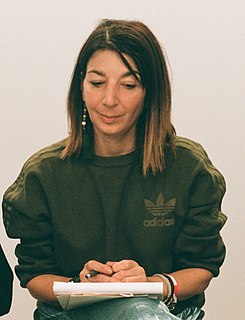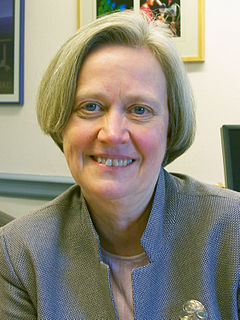Ein Zitat von Mira Calix
Man denkt oft, dass Künstler und Wissenschaftler diametral gegensätzlich sind, aber wir glauben beide, dass etwas möglich ist. Wir haben eine Hypothese und tun dann alles, um sie möglich zu machen, aber wir wissen nicht, ob sie möglich ist! Alle Wissenschaftler, mit denen ich zusammengearbeitet habe, passen einfach und unkompliziert zu mir. Die Lösungen, die sie finden, sind wirklich kreativ. Alle Wissenschaftler sind in gewisser Weise Künstler.
Verwandte Zitate
Wissenschaftler sind Menschen mit sehr unterschiedlichem Temperament, die unterschiedliche Dinge auf sehr unterschiedliche Weise tun. Unter den Wissenschaftlern gibt es Sammler, Klassifizierer und Aufräumzwang; viele sind vom Temperament her Detektive und viele sind Entdecker; einige sind Künstler und andere Handwerker. Es gibt Dichter-Wissenschaftler und Philosophen-Wissenschaftler und sogar ein paar Mystiker.
Ich bin der Meinung, dass es Künstler und Nicht-Künstler gibt. Ich denke, dass es immer so war und immer so sein wird. Ich glaube nicht, dass wir uns im Zentrum der Welt befinden. Es ist möglich, dass es Götter gibt, die nichts mit Menschen zu tun haben. Als Künstler glaube ich, dass es möglich ist, diese Kräfte darzustellen.
Die Wissenschaft wird immer philosophische Fragen aufwerfen, etwa: Ist eine wissenschaftliche Theorie oder ein wissenschaftliches Modell korrekt? Woher wissen wir? Sind unbeobachtete Dinge real? usw. und es scheint mir von großer Bedeutung, dass diese Fragen nicht nur den Wissenschaftlern überlassen werden, sondern dass es Denker gibt, die es sich zur Aufgabe machen, so klar und langsam wie möglich über diese Fragen nachzudenken. Große Wissenschaftler sind nicht immer die besten Philosophen.
Ich habe immer geglaubt, dass man sich so nah wie möglich an die Wissenschaft halten sollte. Und mein größter Rat an Reporter war: Wenn Sie eine Klimageschichte schreiben, sprechen Sie mit Klimawissenschaftlern. Die besten Klimageschichten werden von den Leuten geschrieben, die mit Klimawissenschaftlern sprechen.
Sie fragen die Leute, ob sie zu [einer Person oder] Gott beten sollen. Wenn Sie das bejahen, sind Sie vermutlich nach allen Maßstäben Ihres Verhaltens religiös. Und diese Frage beantworten 40 % der Wissenschaftler mit „Ja“. Es gibt also viele Atheisten, die Wissenschaftler sind oder nicht. Es gibt vielleicht einen Konflikt, aber viele Menschen in diesem Land leben in beiden Welten zusammen.





































